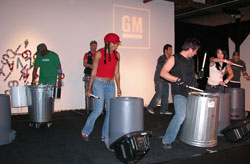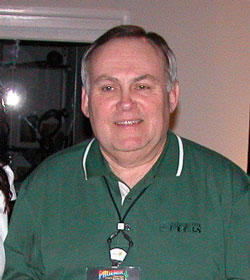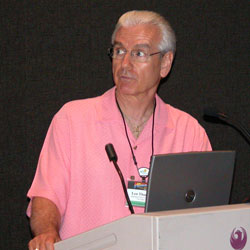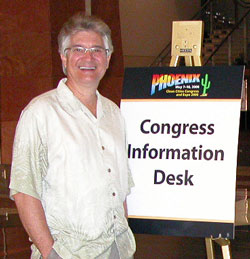 Everyone was having fun at the opening reception here at the Clean Cities Congress. It was definitely an extremely GM event.
Everyone was having fun at the opening reception here at the Clean Cities Congress. It was definitely an extremely GM event.
We’ve got a full day planned for today. To get things started in just a few minutes we’ll have an opening general session featuring a speech by Arizona Senator, John McCain. I’ll be recording it and bringing it to you as shortly after the session as I can.
Of course he’s not the only person on the program. We’ll also be hearing from the local mayor and others like AFVI Executive Director, Annalloyd Thomason.
Domestic Fuel coverage of the Clean Cities Congress is made possible by the following sponsors:




 At our opening reception, hosted by General Motors we got to see a serious percussion performance. We went out to the
At our opening reception, hosted by General Motors we got to see a serious percussion performance. We went out to the 


 The folks at the Clean Cities Congress must be loving CBS.
The folks at the Clean Cities Congress must be loving CBS.  Fleet operators attending the Clean Cities Congress had a packed opening workshop presented by Leo Thomason with the
Fleet operators attending the Clean Cities Congress had a packed opening workshop presented by Leo Thomason with the  I brought a home video camera for the media training workshop and got to tape the practice interviews like this one.
I brought a home video camera for the media training workshop and got to tape the practice interviews like this one.  One of the first workshops offered here is on media training. It’s being conducted by Jenna Higgins who I
One of the first workshops offered here is on media training. It’s being conducted by Jenna Higgins who I  Let’s meet the Chairman of the Clean Cities Congress, Will Kleindienst.
Let’s meet the Chairman of the Clean Cities Congress, Will Kleindienst. You always have to show registration.
You always have to show registration. After a rough night at the ballpark the Clean Cities Coordinators had to be in a morning long meeting.
After a rough night at the ballpark the Clean Cities Coordinators had to be in a morning long meeting.